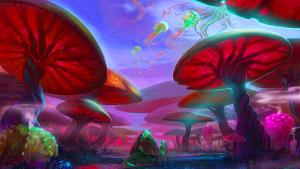Psilocybin As A Treatment For Mental Illnesses
Body
The consumption of psilocybin-containing mushrooms has become a widespread practice for improving mental health indicators. Among different psilocybin mental effects, the treatment of depression and anxiety stands out notably.
Although the official medical use of psilocybin for mental healing is now not approved, numerous users find magic mushrooms an excellent treatment option for various mental health conditions. Keep reading to discover some mental effects of psilocybin as well as its influence on the human brain.
What are psychedelics?
According to the Alcohol and Drug Foundation, psychedelics, or hallucinogens, are determined as a class of psychoactive substances that impact the human world’s perception, mood, and cognitive processes. These substances typically influence all the senses, including a sense of time and a range of emotions. Influencing the way we think, psychedelics are likely to cause hallucinations. This state is characterized by seeing, hearing, or feeling something that doesn’t exist at all.
Today, there are numerous kinds of psychedelic substances. The most popular ones go to LSD – lysergic acid diethylamide – which is made from a component found in fungus ergot and psilocybin taken from mushrooms that grow worldwide. Other types of psychedelic go to mescaline, peyote, DMT, etc.
Psilocybin research
Psilocybin and mental health can go side-by-side, and John Hopkins` study confirmed this suggestion. In this research, two doses of psilocybin were given to adults with major depression and supportive psychotherapy. The results of the study show up that psilocybin can reduce unwanted depression symptoms rapidly. Additionally, half of the participants admitted remission for four weeks of regular psilocybin administration.
What happens during psilocybin therapy
The approach called psilocybin therapy combines pharmacological effects of psilocybin and therapists psychological support. This experience is widely used to treat different mental health conditions, including depression, addiction, anxiety, etc. It is worth mentioning that psilocybin long-term mental effects often incorporate mood swings and even personality changes.
The therapy starts with the preparation process – a patient becomes acquainted with a therapist to feel comfortable and supported during the session. A psilocybin therapy itself means a patient receives a determined dose of psilocybin while lying on a bed in a relaxed environment.
This practice typically lasts from 6 to 8 hours – a patient wears an eye mask for more concentration and listens to a specific playlist made for a psilocybin session. The therapist supervises and assists therapy all the time. Once the experience is over, patients can share their insights with a specialist, and this way, they can change the unwanted emotional background and behavioral patterns.
How psilocybin might affect the brain
The psilocybin mental health effects are explained by the influence of this psychedelic on the human brain. Psilocybin triggers the serotonin receptors responsible for a range of physiological processes, like perception, memory, and even vomiting. This allows the human brain to control chemical imbalances as well. Additionally, psilocybin is likely to affect the brain’s prefrontal cortex – this part of our brain is responsible for perception, mood swings, ability to analyze, abstract thinking, etc.
Resource URL : https://www.nupepshrooms.com/











Comments